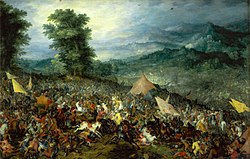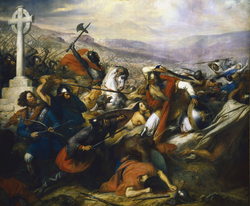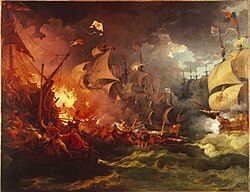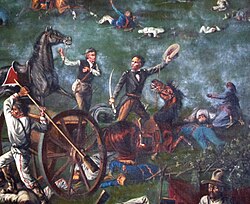Criticism
Creasy's text, while immensely popular at the time, and still frequently read today [3] came into an increasing amount of criticism from the 20th century onwards in regards to several aspects. [4]
Eurocentrism
The vast majority of Creasy's selected battles occurred in Europe between two European powers (or in the case of the Battle of Saratoga, between two Western powers). In addition, many of his battles feature England in some capacity, leaving a lack of balance in regards to non-European history. [4]
Non-decisive
Creasy's text is premised on the fact that his chosen battles were decisive - that an alternate result (or the absence of the battle) would lead to the world as we know it being radically different. [5] This viewpoint has been frequently criticised in the last century, with most, though not all, viewpoints disagreeing that (these) singular battles were the primary movers of society. [5] [4]
Vagueness
Beyond potential errors in choice or concept, Creasy is criticised for the vagueness of his descriptions, sources given and battle analysis. By World War I, fully reconstructed battle movements and plans were considered the norm if true analysis was to be undertaken. [4] The lack of context, both political and social, around the battles chosen makes consideration of its various impacts either difficult or impossible. [6] There is also a focus on dramatic description or rhetoric of the battles taking precedence over analysis. [6] Set against this however is the fact that Creasy did not specifically set out to target his works for the military or military historians - he also wrote for public readership, and was without military experience or formal training in the field. [7]
This page is based on this
Wikipedia article Text is available under the
CC BY-SA 4.0 license; additional terms may apply.
Images, videos and audio are available under their respective licenses.









